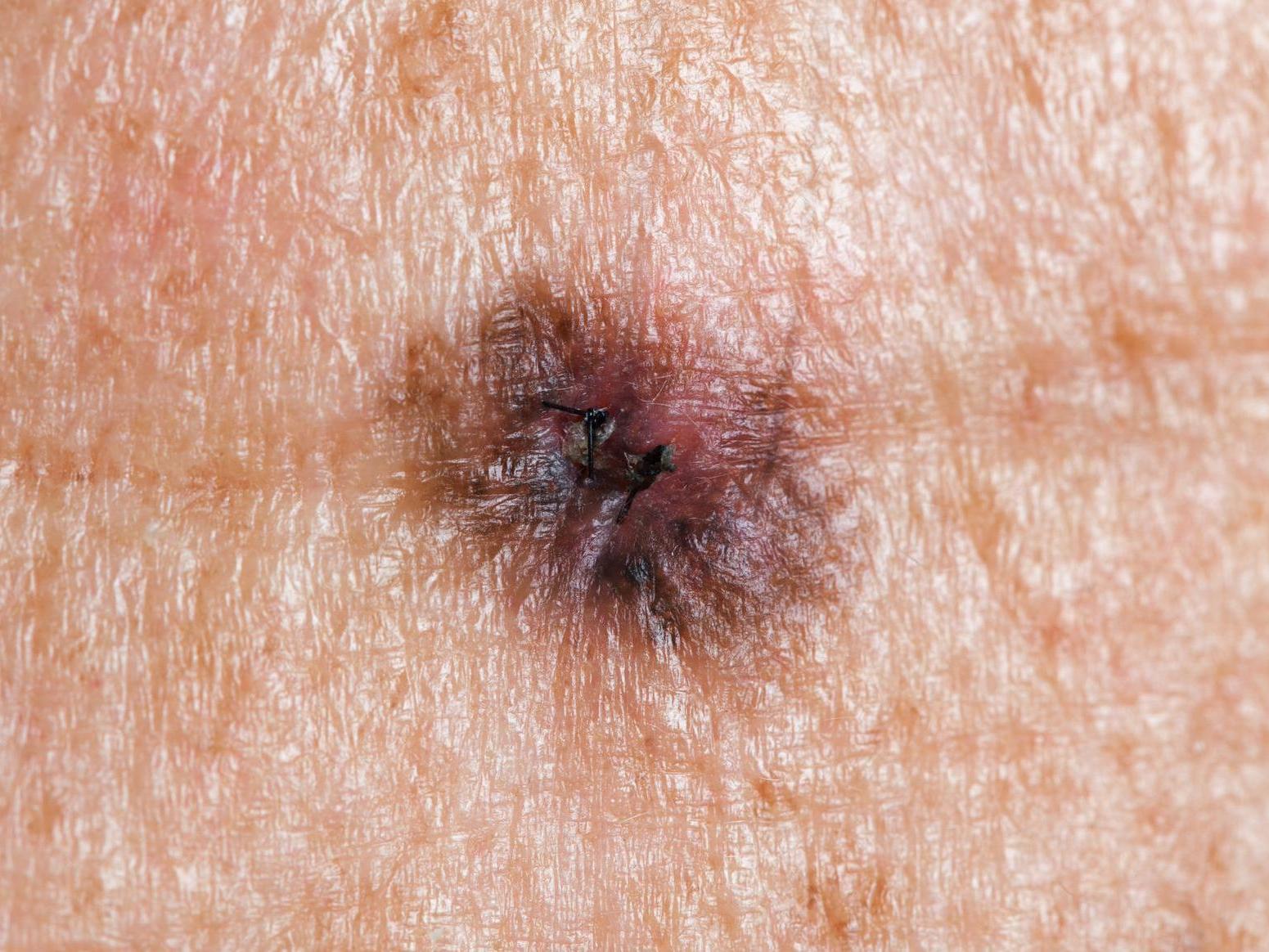Skin cancer: Drug treatment increases patients’ long-term survival chances by 50 per cent, study claims
Findings are ‘huge milestone’ for melanoma treatment, specialist says

A combination of two powerful drugs for skin cancer can increase a patient’s long-term survival chances by 50 per cent, according to a study.
Results from a new trial have shown that ipilimumab (Yervoy) and nivolumab (Opdivo), taken together, can stop or reverse the progression of advanced melanoma for five years or more in one in two patients.
Melanoma is a form of skin cancer, known for its mole-like appearance on the skin, that accounts for about 2,300 deaths in the UK every year.
The most recent figures showed about 16,000 people were diagnosed with the disease in 2016.
Both of the drugs, developed by pharmaceutical company Bristol-Myers Squibb, help the immune system find and destroy cancer cells as they spread.
A decade ago, only one in 20 patients with advanced melanoma survived for as long as five years, with many living for just six to nine months.
Professor James Larkin, a consultant medical oncologist at the Royal Marsden NHS Foundation Trust, said: “In the past, metastatic melanoma was regarded as untreatable. This is the first time we can say that the chances of being a long-term survivor of advanced melanoma are now over 50 per cent, which is a huge milestone.”
Patients in the trial were divided into three groups and given both nivolumab and ipilimumab or one of the drugs with a placebo.
The five-year overall survival rate for the combination group was 52 per cent, with 74 per cent of those patients going treatment-free after five years.
The overall survival for the nivolumab group was 44 per cent, while for the ipilimumab group, it was 26 per cent.
Mr Larkin, who is also a professor at the Institute of Cancer Research, said: “By giving these drugs together, you are effectively taking two brakes off the immune system rather than one so that the immune system is able to recognise tumours it wasn’t previously recognising and react to that and destroy them.”
Researchers also found that patients who stopped treatment because of side-effects such as fatigue, skin rashes and diarrhoea saw outcomes that were just as good as those who were on the combination for longer.
However, Mr Larkin warned that there is currently no method to predict which patients are most likely to benefit from combination immunotherapy.
“The decision on which treatments to give is a matter for doctors to discuss with individual patients and their families,” he said. “The two drugs together definitely have a role in treating metastatic melanoma and will be the choice for some patients. For others, the decision may be to give the drugs in sequence.”
The findings from the trial, which was led by the Royal Marsden NHS Foundation Trust, will be presented at the European Society for Medical Oncology meeting in Barcelona, Spain, and published in The New England Journal of Medicine.
The treatment is recommended by the National Institute for Health and Care Excellence and is available in this combined way on the NHS, following assessments by doctors.
Agencies contributed to this report
Subscribe to Independent Premium to bookmark this article
Want to bookmark your favourite articles and stories to read or reference later? Start your Independent Premium subscription today.

Join our commenting forum
Join thought-provoking conversations, follow other Independent readers and see their replies